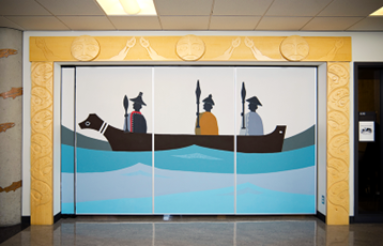Our CTLR team comes to this work from diverse backgrounds and disciplinary perspectives. We begin by acknowledging our own positionality and place as non-Indigenous folks of diverse backgrounds and disciplinary perspectives. We are not experts, but we have a responsibility to join in this work and educate ourselves. We seek to facilitate, support, and share resources with others. We look to and listen to Indigenous Elders, Knowledge Keepers, scholars and community leaders. We recognize the limitations of our knowledge, and understand that humility, risk-taking and accepting discomfort are part of this process.
For 2023-24, the CTLR team is committed to:
- The instructional associates, online developers and manager of e-learning completing the Pulling Together Guide for Curriculum Developers series with support and involvement of the VCC Indigenous Education department.
Pulling Together: A Guide for Indigenization of Post-Secondary Institutions is a set of open professional learning guides that are the result of collaboration between BCcampus, the Ministry of Advanced Education and Skills Training, and a steering committee of Indigenous education leaders. The content in these guides is authored by teams of Indigenous and ally writers from across B.C. - Beginning consultation with Indigenous Education and Community Engagement about updates to program renewal guiding questions and curriculum development documents with respect to Indigenization and decolonization.
- Co-facilitating a Pulling Together for Teachers and Instructors learning series with IECE.
- Providing resources and peer learning support in consultation with IECE for instructors/curriculum developers interested in starting or continuing their own and/or department journey of indigenizing and decolonizing curriculum and instruction.

